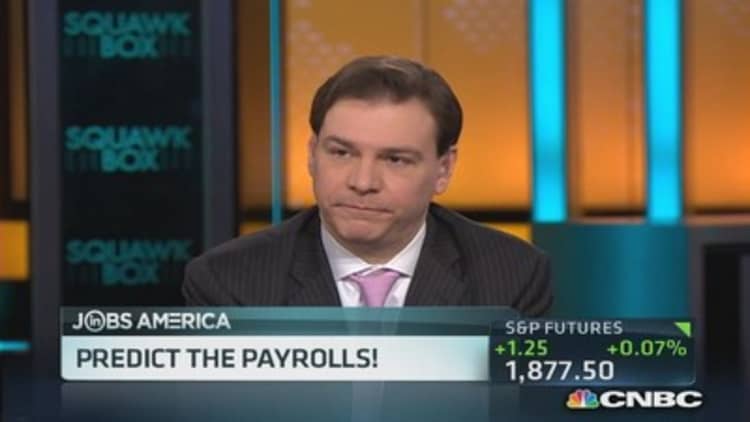Remember President Barack Obama's budget submission? Neither does anyone else. How about that proposal for comprehensive tax reform that came out a couple weeks ago? Doesn't ring a bell? There's no reason it should.
Oh yeah and recall all that talk about getting an immigration reform bill out of Congress this year? Fat chance. Housing finance reform? Yeah right.
It may be only March but the legislative year in D.C. is basically over.
By passing a budget and suspending the debt limit until next year, members of Congress have already done the bare minimum required to ensure no big fiscal crisis emerges to throw either side off their messaging goals for the 2014 midterm election.
From a political perspective, this makes perfect sense.
Democrats want the election to be about mean-spirited Republicans who don't want to raise the minimum wage, extend jobless benefits or celebrate the fact that lower-income people now have better access to affordable health care.
Republicans want the election to be about what they view as a disastrous health-care law that Americans don't like and an economy that is barely treading water.
(Read more: Democrats on the jobs report: Phew!)
From an economic perspective, the lack of legislative prospects is pretty much a disaster.
Friday's jobs report showing a gain of 175,000 in February was a welcome relief. But it's nothing to get excited about. And while the fundamentals are in place for decent growth this year, imagine how much better things could be?
(Read more: Heating up: Job creation accelerates in February)
Imagine a Washington that could actually make some deals on targeted infrastructure spending (to warm Democratic hearts) coupled with corporate tax reform (to sweeten the pot for Republicans). And there is actually a fairly broad middle ground on housing finance that would reduce the government backstop but not eliminate it altogether.
There is almost no chance that any such consensus bill will emerge, so the housing market will continue to plod along with no certainty for builders, buyers, lenders or anyone else of what the structure of the market will ultimately look like.
(Read more: GOP presidential race wide open, no matter what you're hearing)
Instead of addressing any of this, DC has already moved on to the midterms. Look no further than Florida, where the special election on Tuesday to replace the late GOP Rep. Bill Young is being touted as a bellwether for the fall campaigns.
The race in the 13th district, which encompasses St. Pete and Clearwater, pits Democrat Alex Sink against Republican David Jolly. Obama carried the district in 2012, making it classic swing territory.
Jolly and the Republicans have made the race almost entirely about Obama and the health-care law. So if the GOP wins, many believe it will bode ill for the Democrats' chances in the fall. And if the Democrat wins, the thinking goes, the Republicans should rethink their plan for making the midterms all about Obama.
(Read more: )
Never mind that all of this is laying far too much significance on a single congressional race where local issues and the candidates' own personalities could make as much difference as anything else. Washington isn't doing any legislating so why not obsess over one special election?

And if the 2014 campaign isn't enough for you, the 2016 presidential election appears to be in full swing as well. At least according to the prevailing narrative. Look no further than the CPAC conference in Washington where over the weekend Rand Paul once again won the straw poll among mostly young attendees who thrill to the Kentucky GOP senator's cool image and libertarian leanings. Never mind that when we actually get to 2016, the GOP establishment will be desperate to nominate a candidate who can actually beat Hillary Clinton (or some other Democrat).
It's not likely they will turn to the libertarian wing of the party, especially given the brutal beating a candidate like Paul would take on foreign policy from Clinton or any other Democrat.
The GOP almost always winds up going with the safe choice and/or the next person in line. And that's much more likely to be someone like Jeb Bush or Rep. Paul Ryan should either decide to run, or perhaps Sen. Marco Rubio of Florida or a sitting governor such as Wisconsin's Scott Walker.
But don't let any of this get in the way your current pleasure in reading too much into straw polls and special elections. After all, it's not like there's anything that Washington actually needs to do.
—By Ben White. White is POLITICO's chief economic correspondent and a CNBC contributor. He also authors the daily tip sheet POLITICO Morning Money [politico.com/morningmoney]. Follow him on Twitter @morningmoneyben.


